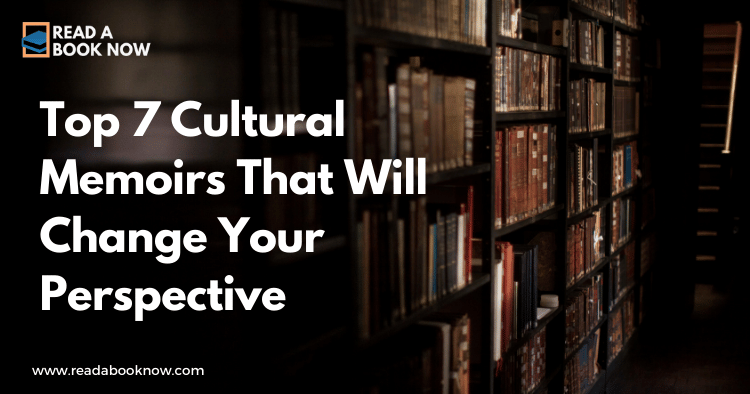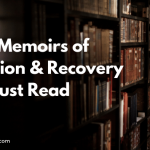Table of Contents
- Introduction
- 1. “Becoming” by Michelle Obama
- 2. “The Glass Castle” by Jeannette Walls
- 3. “Educated” by Tara Westover
- 4. “Born a Crime” by Trevor Noah
- 5. “The Color of Water” by James McBride
- 6. “When Breath Becomes Air” by Paul Kalanithi
- 7. “I Know Why the Caged Bird Sings” by Maya Angelou
- Conclusion
- FAQs
Introduction
Cultural memoirs are powerful tools that provide insight into diverse experiences and perspectives. They allow readers to step into the shoes of individuals from various backgrounds, enriching our understanding of the world and ourselves. In this article, we’ll explore seven impactful cultural memoirs that promise to change your perspective and broaden your horizons. Each of these books encapsulates unique experiences that resonate with universal themes of resilience, identity, and the search for belonging.
1. “Becoming” by Michelle Obama
In her bestselling memoir, former First Lady Michelle Obama takes us on an intimate journey through her life, from her childhood on the South Side of Chicago to her role as a global icon. “Becoming” is a candid exploration of identity, race, and the struggles and triumphs of balancing career and family.
Key Takeaways:
- Empowerment: Michelle emphasizes the importance of education and finding one’s voice.
- Resilience: Her story illustrates how overcoming challenges can lead to personal growth.
This memoir not only offers a glimpse into her life but also inspires readers to embrace their own narratives.
You can find more about her journey on Penguin Random House.
2. “The Glass Castle” by Jeannette Walls
Jeannette Walls’ “The Glass Castle” is a poignant memoir that delves into her unconventional upbringing. Growing up in a dysfunctional family with an alcoholic father and an eccentric mother, Walls recounts her struggles and resilience in a life marked by poverty and instability.
Key Takeaways:
- Family Dynamics: Walls explores the complexities of familial love and dysfunction.
- Survival: Her story is a powerful testament to the strength of the human spirit.
The memoir has received critical acclaim and has been adapted into a film, making it a cultural touchstone.
Discover more about Jeannette and her story on HarperCollins.
3. “Educated” by Tara Westover
“Educated” is a gripping memoir about Tara Westover, who grew up in a strict and abusive household in rural Idaho, where she was kept out of school. Despite her lack of formal education, she eventually escapes her circumstances and goes on to earn a PhD from Cambridge University.
Key Takeaways:
- The Value of Education: Westover’s journey emphasizes the transformative power of knowledge.
- Identity and Belonging: The memoir also examines the struggle between familial loyalty and self-discovery.
This memoir has become a modern classic, inspiring countless readers to value education and resilience.
Learn more about Tara’s incredible journey on Random House.
4. “Born a Crime” by Trevor Noah
Trevor Noah’s “Born a Crime” recounts his experiences growing up in South Africa during apartheid as the son of a black mother and a white father, which was illegal at the time. Through humor and storytelling, Noah reflects on race, identity, and the complexities of his upbringing.
Key Takeaways:
- Cultural Identity: Noah explores the nuances of race and identity in a divided society.
- Humor as a Coping Mechanism: His humorous anecdotes provide levity to serious topics.
“Born a Crime” is not just a memoir; it’s a powerful commentary on the human condition that resonates globally.
You can find more about Trevor’s life on Penguin Random House.
5. “The Color of Water” by James McBride
James McBride’s “The Color of Water” is a unique memoir that intertwines his life story with that of his mother, a Polish Jewish immigrant who married an African American man. The narrative shifts between their perspectives, exploring themes of race, faith, and identity.
Key Takeaways:
- Race and Identity: McBride tackles the complexities of race and culture in America.
- Mother-Son Relationship: The bond between McBride and his mother offers profound insights into love and sacrifice.
This memoir has become a staple in discussions about race and identity in America, prompting vital conversations.
Explore more about McBride’s story on Riverhead Books.
6. “When Breath Becomes Air” by Paul Kalanithi
In “When Breath Becomes Air,” neurosurgeon Paul Kalanithi reflects on his life and career after being diagnosed with terminal lung cancer at the age of 36. This poignant memoir explores the intersection of medicine, mortality, and the meaning of life.
Key Takeaways:
- Life and Death: Kalanithi’s reflections on his experiences offer a unique perspective on living fully.
- Professional Identity: The memoir delves into the challenges faced by medical professionals.
Kalanithi’s writing is both heartbreaking and inspiring, making this memoir a profound read that lingers long after the last page.
You can find more about his journey on Random House.
7. “I Know Why the Caged Bird Sings” by Maya Angelou
Maya Angelou’s “I Know Why the Caged Bird Sings” is a landmark work that chronicles her early years, highlighting the impact of racism, trauma, and resilience. Angelou’s lyrical prose captures her childhood experiences and the journey to finding her voice.
Key Takeaways:
- Resilience in Adversity: Angelou’s story showcases the strength needed to overcome hardship.
- Cultural Identity: The memoir explores themes of race, identity, and belonging.
Angelou’s work remains a powerful testament to the human spirit, making it a must-read for anyone seeking inspiration.
Discover more about her legacy on Random House.
Conclusion
Cultural memoirs have the power to transform our perspectives and deepen our understanding of the human experience. The stories shared in these seven memoirs reflect resilience, identity, and the importance of embracing our own narratives. By reading these works, you not only gain insight into the lives of others but also encourage reflection on your own journey.
Also look for related themes in 10 Must-Read Feminist Classics That Changed Literature, which share narratives of strength and identity through different cultural lenses.
FAQs
1. What is a cultural memoir?
A cultural memoir is a personal narrative that explores the author’s experiences and reflections on their cultural identity, background, and the social issues that shape their life.
2. Why should I read cultural memoirs?
Cultural memoirs offer unique perspectives on life, helping readers develop empathy and understanding for diverse experiences and cultures.
3. Are there any other notable cultural memoirs worth reading?
Absolutely! Other notable memoirs include “The Liars’ Club” by Mary Karr, “Wild” by Cheryl Strayed, and “Just as I Am” by Cicely Tyson.
4. How can I find more cultural memoirs?
You can explore online bookstores, libraries, or literary websites like Goodreads and Book Riot.



